War and humanitarianism, medicine and public health, rights and justice... Discover CRASH publications sorted by themes.
The fact that CRASH publications are written from an aid practitioner's, rather than researcher's, perspective, does not exempt them from the demands of rigorous research methods. We try hard at this, with the help of (volunteer) research professionals. The publications are not the MSF party line, but rather tools for reflexion based on MSF's framework and experience. They have only one purpose: to help us better understand what we are doing. Criticisms, comments and suggestions are more than welcome - they are expected.
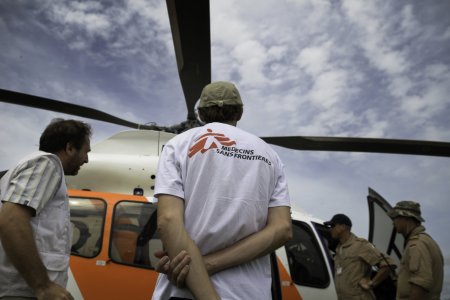 Robin Meldrum/MSF
Analysis
Robin Meldrum/MSF
Analysis
Ending the Code of Silence on Abductions of Aid Workers
11/22/2019This article discusses the policy of absolute secrecy on abductions adopted by aid organisations. It argues that the information blackout on past and current cases is to a large extent a function of the growing role of private security companies in the aid sector, which promote a ‘pay, don’t say’ policy as a default option, whatever the situation. The article contends that secrecy is as much an impediment to resolving current cases as it is to preventing and managing future ones. It suggests abandoning the policy of strict confidentiality in all circumstances – a policy that is as dangerous as it is easy to apply – in favour of a more nuanced and challenging approach determining how much to publicise ongoing and past cases for each audience, always keeping in mind the interests of current and potential hostages.
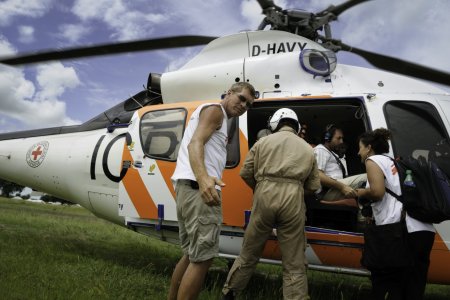 Robin Meldrum/MSF
Analysis
Robin Meldrum/MSF
Analysis
Oases of Humanity and the Realities of War. Uses and Misuses of International Humanitarian Law and Humanitarian Principles
06/28/2019The rehabilitation of international humanitarian law (IHL) has become a priority for those who think that the horrors of contemporary wars are largely due to the blurring of the distinction between civilians and combatants and for those who think that campaigning for the respect of IHL could result in more civilised wars. Similarly, respect for humanitarian principles is still seen by many as the best tool available to protect the safety of aid workers. In this text, I argue that both assumptions are misled. The distinction between civilians and combatants, a cornerstone of IHL, has been blurred in practice since the late nineteenth century. In addition, humanitarian agencies claiming to be ‘principled’ have been victims of attacks as much as others. History and current practice tell us that neither IHL nor humanitarian principles provide safety or can guide our decisions. Accepting their symbolic value, rather than their unrealised potential to protect and solve operational dilemmas, would free humanitarian agencies from endless speculations.
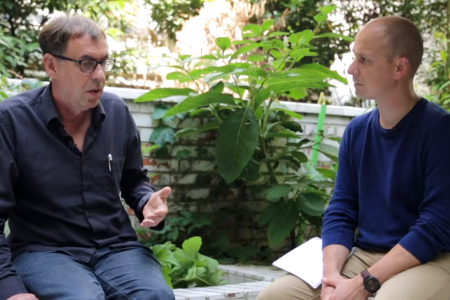 Video
Video
The 20th anniversary of the MSF Access Campaign
06/03/2019To address the political, economic and legal barriers to patients' access to life-saving treatments, MSF created, in 1999, the Access Campaign (the Campaign for Access to Essential Medicines). In these videos, Jean-Hervé Bradol, doctor and crash study director, answers questions from Andrea Bussotti (MSF-France Operational Communication Manager). In the light of the historical background of the early days of the Access Campaign, he analyses the medico-operational context of the Campaign today and asks himself the question of its objectives.
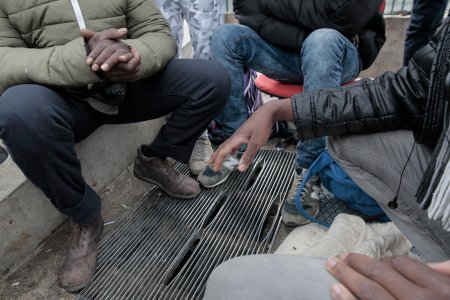 Antoine Kremer/MSF
Analysis
Antoine Kremer/MSF
Analysis
Médecins Sans Frontières-France: tensions arising from the “Migration” projects
05/07/2019In the summer of 2015, the French section of Médecins Sans Frontières started aid projects for migrant populations in Greece and France. The launch of these operations was the occasion for lively discussions within the association, both in terms of public positioning (how to justify an intervention in a rich country and not get lost in "political" territory?), and in terms of revising our operating methods, knowing that the primary needs of migrants were not primarily medical. Some people then recalled the association's militant practices in the 1990s, which were sometimes considered as abuses. By retracing the history of the French Mission, Michaël Neuman seeks to understand, with regard to the migration issue, the complex articulation between operational constraints, political positioning and militant practices.
 Book
Book
Humanitarian wars ? Lies and brainwashing
04/18/2019In the eyes of Rony Brauman of Médecins sans Frontières, wars are always triggered in the name of morality. Today’s “humanitarian” interventions are little more than new moral crusades – and their justifications are based on lies.
 Analysis
Analysis
Literature review on the evaluation of the quality of care from a patient’s perspective
02/15/2019The study The Patient Perspective of Quality of Care: A Review of the Literature, which we present here was carried out by Hannah Barnett a public health student at George Washington University, intern with CRASH from June to August 2018. This work sums up seventy articles from a variety of disciplines including medicine and public health. It is part of a reflection initiated by MSF a few years ago on medical quality and the patient-centered approach.
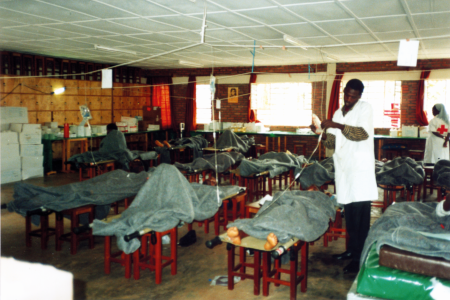 Xavier Lassalle/MSF
Review
Xavier Lassalle/MSF
Review
Book Review: Jean-Hervé Bradol and Marc Le Pape, Humanitarian Aid, Genocide and Mass Killings: Médecins Sans Frontières, the Rwandan Experience, 1982–97
02/05/2019This book describes and analyses the work of Médecins Sans Frontières (MSF) in the Great Lakes Region between 1982 and 1997. It explores the everyday, operational and political dilemmas faced by MSF staff in the field and the debates that followed, as they asked themselves: ‘how should we react and what action should we take’ in the wake of mass violence (p. 4). In effect, the authors ask: (how) could MSF prevent itself being manipulated or becoming complicit in the everyday atrocities in the field?
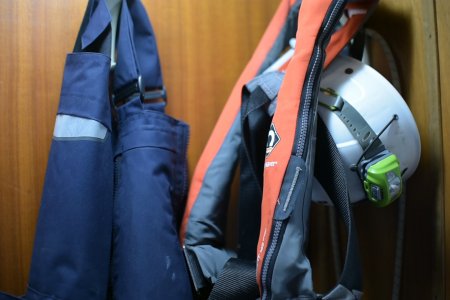 Ikram N'gadi
Op-ed
Ikram N'gadi
Op-ed
Sea Search and Rescue Operations Outlawed
Dont acte, la politique de harcèlement judiciaire, administratif, politique aura eu raison de l’Aquarius, déployé entre 2015 et le milieu de l’année 2018 en mer Méditerranée.
Tribune de Mego Terzian (Médecin, président de Médecins sans frontières) et Michaël Neuman (Directeur d'études au CRASH de MSF) publiée le 07 décembre 2018 dans Le Monde.
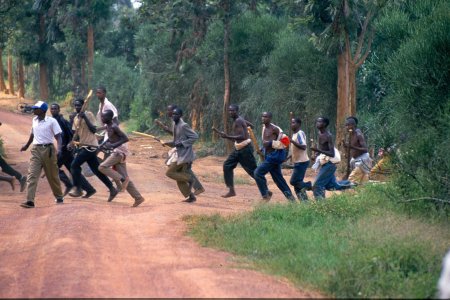 Roger Job
Review
Roger Job
Review
From War To Genocide: Criminal Politics in Rwanda 1990–1994; Humanitarian Aid, Genocide and Mass Killings: Médecins Sans Frontiéres, The Rwandan Experience, 1982–97
10/07/2018Although much has been written about the 1994 genocide in Rwanda, two recent volumes offer fresh perspectives and add considerable insights. Guichaoua’s From War to Genocide: Criminal Politics in Rwanda 1990–1994 takes the reader deep into the belly of the beast. The book describes and analyzes the real politics of the politics of genocide based on extraordinary detailed evidence with respect to the strategies and tactics of key military and political players. Bradol and Le Pape’s Humanitarian Aid, Genocide and Mass Killings: Médecins Sans Frontières, The Rwandan Experience, 1982–97 offers a unique understanding of the consequences of this murderous political game from the point of view of humanitarian aid workers in general and the NGO Doctors Without Borders (Médecins Sans Frontières – MSF) in particular.
